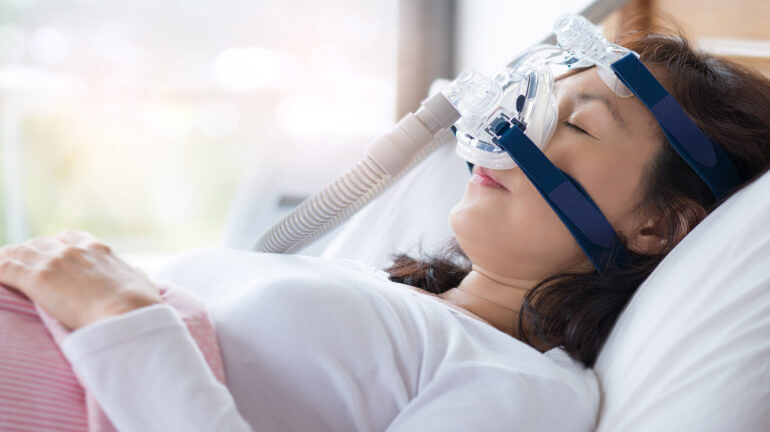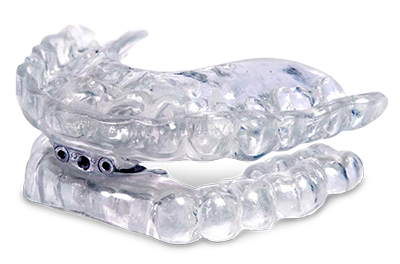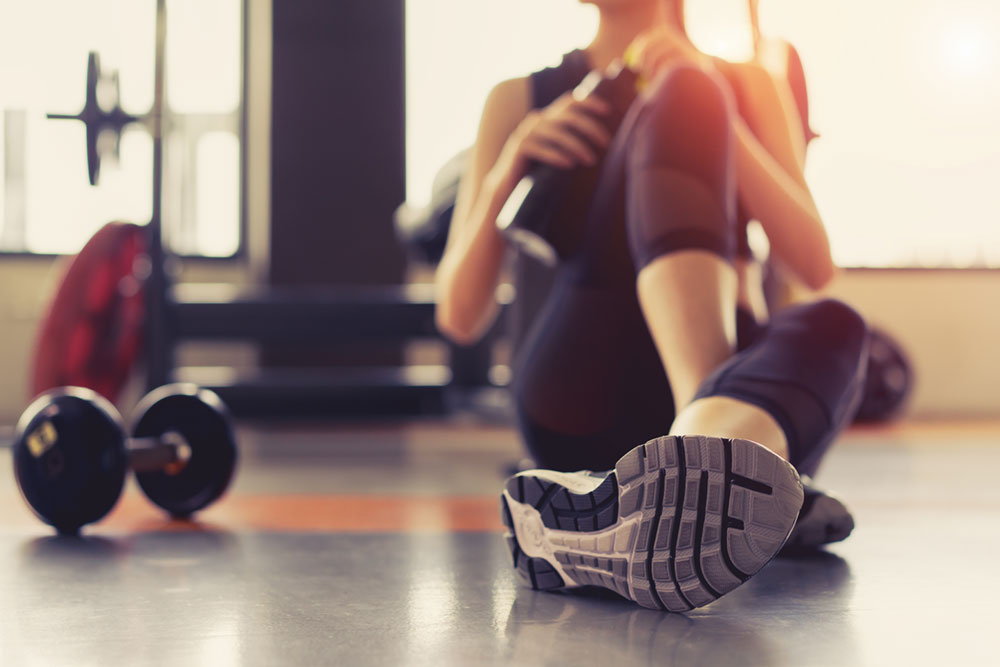What is CPAP?
Continuous positive airway pressure (CPAP) is an electric-powered mask that’s worn at night by patients who suffer from sleep apnea. It delivers a specific amount of gentle air pressure while the patient is sleeping to keep their airway open and prevent them from snoring, choking, or stopping breathing overall.
Although this method of treatment works for many, others complain about it restricting them while they sleep, loud, and nearly impossible to take anywhere. As many as four in five people don’t use their CPAP for the suggested time each night because of these inconveniences.
This means more than half of CPAP users aren’t receiving their required treatment for their sleep apnea, which can lead to greater health complications down the road. Learn about our more comfortable, easy to use, portable treatment– an oral appliance.

The Smaller, More Convenient Oral Appliance
One of the most effective types is a mandibular advancement appliance, which means that it moves the jaw forward. This oral appliance helps clear the obstruction in your throat that’s interrupting your breathing pattern.
Each oral appliance is personalized and made to fit each unique patient. After Dr. Robinette sends in your oral impressions to a lab, he’ll have you return to retrieve your new appliance so you can begin treatment right away.
Similar to a sports mouthguard, you’ll wear it at night and it’ll work to gently move your jaw forward. Oral appliances are generally most effective for patients with mild-to-moderate sleep apnea, however, some patients can still find relief with more severe cases.


Benefits of an oral appliance in comparison to CPAP include:
- Simple to use
- More affordable than CPAP
- Renewed, quality sleep
- Can easily take with you anywhere you go
- Smaller and silent
- Doesn’t require power
- Unobtrusive
If you’ve been looking to restore your sleep and live a rejuvenated life full of energy without the irritations of a CPAP, then schedule your consultation today with Dr. Robinette to discover our highly-effective oral appliances.
More Alternatives to CPAP
If you want to try other alternatives to CPAP to help relieve your sleep apnea, Dr. Robinette suggests a handful of remedies that can help. Certain changes in your lifestyle can be a simple way to alleviate your unwanted symptoms including:
- Switch your sleep position from your back to your side
- Stop smoking or drinking alcohol excessively
- Minimize the use of sleeping pills
- Exercise and lose weight
- Use nasal decongestants or nasal sprays
- Try different throat exercises
In extreme cases where sleep apnea is the result of a physical characteristic that’s influencing the severity of your disorder and a CPAP or oral appliance aren’t completely helping, we may suggest surgery. Some examples of sleep apnea surgeries include tissue removal, jaw repositioning, deviated septum, or polyp removal.

